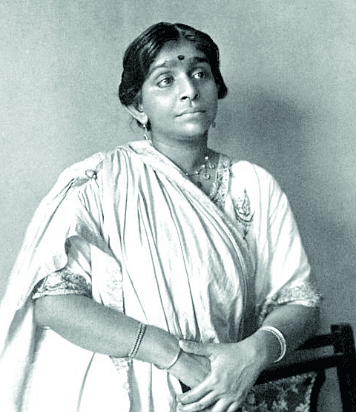Nitin Singhania Summary: Indian Literature- 2 | History for UPSC CSE PDF Download
Nationalist Literature of India
Nationalism and literature are closely connected, especially in the history of India's fight for freedom. In the 19th century, nationalist ideas started to emerge, and writings in various Indian languages flourished, with many writers focusing on topics of national importance.
Some literary works associated with nationalism and socio-religious reforms include:
Bankim Chandra Chatterjee
- He was a renowned novelist and played a pivotal role in educating and raising awareness among the common people.
- He initiated the journal Bangadarshan, a platform for disseminating information and ideas.
 Bankim Chandra Chatterjee
Bankim Chandra Chatterjee - The magazine had a profound influence on the emergence of a distinct Bengali identity, contributing significantly to the genesis of nationalism in Bengal.
- His novel Anand Math inspired the youth, encouraging them to participate in nationalist activities actively.
Rabindranath Tagore
- He provided his unique interpretation of nationalism by associating it with humanity rather than just geographical boundaries.
- He highlighted the importance of achieving 'freedom of mind' through his novels like Gora and Ghare Baire, reflecting a broader perspective on nationalism.
- Tagore's literary contributions, including the national anthem Jana Gana Mana, exuded a nationalistic fervor that resonated with the sentiments of the people.
 Rabindranath Tagore
Rabindranath Tagore
Bharatendu Harischandra
- Bharatendu Harischandra utilized poetry as a powerful medium to evoke a sense of patriotism among the general public.
- His theatrical works, including plays like Andher Nagari and Bharat Durdasha, brought attention to the oppressive character of British rule.
Dadabhai Naoroji
- Dadabhai Naoroji's book Poverty and Un-British Rule in India marked the beginning of economic critique within the nationalist discourse.
- He introduced the concept of the 'Drain of Wealth' from India to Britain, shedding light on economic exploitation.
R.C. Dutt
- R.C. Dutt contributed to the nationalist cause by exposing economic exploitations by the British in his book The Economic History of India.
- Additionally, he expressed his patriotism through literature, writing four historical novels that reflected his commitment to the nationalist movement.
 Bhagat Singh
Bhagat Singh
Bhagat Singh
While in Lahore Central Jail, wrote the essay "Why I am an Atheist" to propagate his nationalist ideas among the common people.
Books by Various Leaders
Works like The Indian Struggle by Subhas Chandra Bose, The Discovery of India by Jawaharlal Nehru, and The Indian War of Independence by V.D. Savarkar played a crucial role in educating and instilling a sense of patriotism among educated Indians.
Mahatma Gandhi
During his stay in Yeravda Jail in 1930, he translated Sanskrit hymns and melodies into English in the book Songs from Prison, contributing to the cultural aspect of the nationalist movement.
Indian English Literature(IEL)
IEL comprises writings by Indians using English, influenced by British education during the colonial era. It represents a unique fusion of Indian cultural contexts within the framework of English expression.
Early Examples: An early example is Sake Dean Mahomet's "The Travels of Dean Mahomet" (1794 AD), blending factual travel accounts with non-fiction elements.
First Indian Novels:
- The inception of Indian novels in English is marked by "Rajmohan’s Wife" (1864) by Bankim Chandra Chattopadhyay.
- "Bianca, or The Young Spanish Maiden" (1878) by Toru Dutt is a pioneering work by an Indian woman.
 Sarojini Naidu
Sarojini Naidu
Early Poets: Derozio, Michael Madhusudan Dutt, Toru Dutt, Romesh Chunder Dutt, Sri Aurobindo, and Sarojini Naidu were poets contributed to early Indian English literature.
1930s Growth: R. K. Narayan, Mulk Raj Anand, and Raja Rao played crucial roles in the development and popularity of Indian English fiction in the 1930s.
Influential Speeches: Swami Vivekananda, Rabindranath Tagore, Chittaranjan Das, Bal Gangadhar Tilak, Mahatma Gandhi, and Subhas Chandra Bose delivered speeches influencing both modern India and the role of English.
Notable Contemporary Writers: Salman Rushdie, Anita Desai, Arundhati Roy, Vikram Seth, Rohinton Mistry, and Shashi Tharoor are contemporary figures significantly contributing to Indian English literature.
The evolution of Indian English literature reflects a dynamic interplay between cultural influences, historical contexts, and the creative expressions of diverse writers.
|
111 videos|495 docs|173 tests
|
FAQs on Nitin Singhania Summary: Indian Literature- 2 - History for UPSC CSE
| 1. What is nationalist literature in India? |  |
| 2. What are the characteristics of nationalist literature in India? |  |
| 3. Who were some important authors of nationalist literature in India? |  |
| 4. How did nationalist literature contribute to the Indian independence movement? |  |
| 5. Is nationalist literature still relevant in contemporary India? |  |

|
Explore Courses for UPSC exam
|

|





















